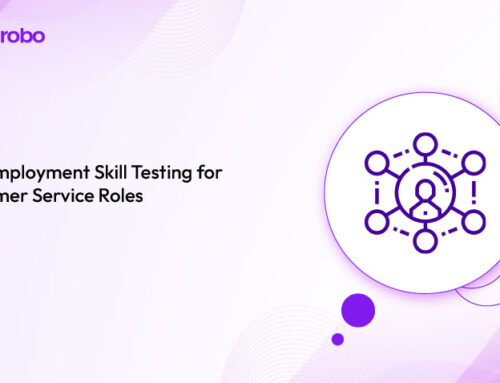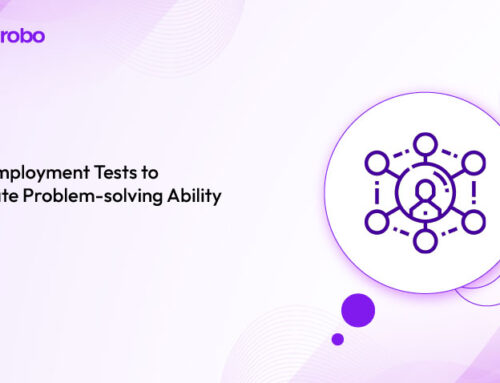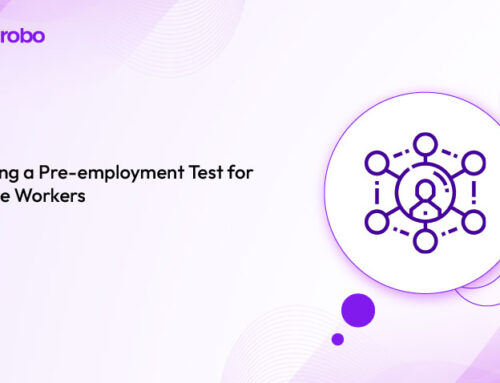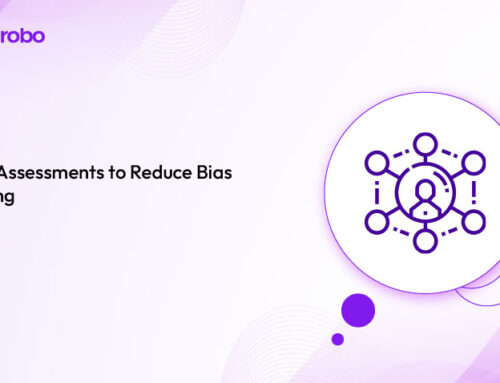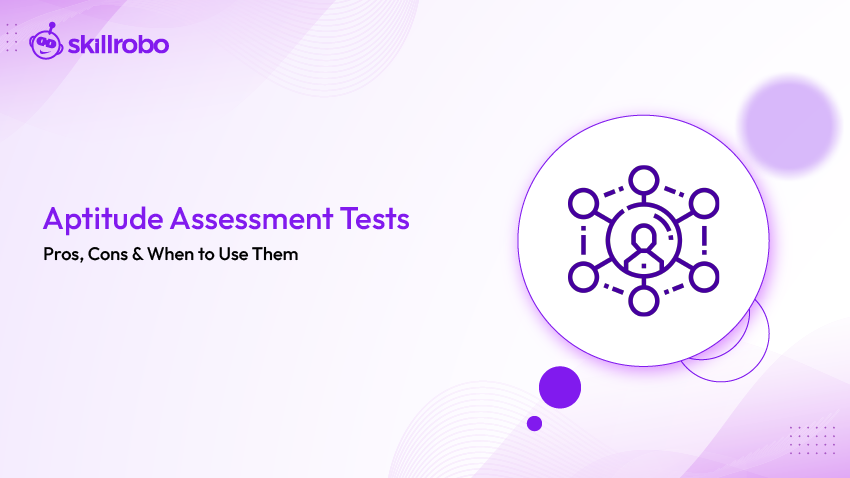
Key Takeaways
- Aptitude assessments measure a candidate’s potential through evaluations of problem-solving, logical reasoning, and cognitive skills.
- These tests help employers differentiate between candidates with similar qualifications by objectively evaluating core competencies.
- Data-driven aptitude tests reduce hiring biases and improve overall candidate quality, leading to better job fit and reduced turnover.
- When combined with other pre-employment assessments, aptitude tests provide a comprehensive view of a candidate’s strengths and areas for development.
Unlocking Candidate Potential with Aptitude Assessments
Finding the right candidate goes beyond simply matching resumes to job descriptions. Pre-employment assessment tools now play a crucial role by evaluating not only domain skills and personality traits but also a candidate’s innate aptitude. Traditional interviews and application reviews often miss the mark in gauging a candidate’s true potential—especially when multiple candidates share similar qualifications. Aptitude assessment tests fill this gap by objectively measuring abilities such as logical reasoning, problem-solving, numerical reasoning, verbal comprehension, and visual-spatial cognition.
Across various regions in the United States—from bustling financial hubs in New York to tech-driven markets in California—employers are increasingly relying on these tests to make informed hiring decisions. Research indicates that organizations using aptitude assessments can reduce bad hires by up to 25% and experience a 20% boost in candidate quality. In this blog, we explore what aptitude assessment tests are, why they matter in hiring, the different types available, and the pros and cons of using them. We also provide practical guidance on best practices and how platforms like Skillrobo help design fair and effective tests.
What Are Aptitude Assessment Tests?
Aptitude assessment tests are specialized evaluations designed to measure a candidate’s potential and core competencies rather than just their acquired skills. They focus on the mental abilities that predict how well a candidate will perform in various aspects of their job. Unlike personality tests or technical skills assessments, aptitude tests delve into the candidate’s capacity for critical thinking, logical analysis, and problem-solving.
These tests generally include questions that assess:
1. Logical Reasoning: Evaluating how candidates identify patterns and solve abstract problems.
2. Numerical Aptitude: Testing a candidate’s ability to work with numbers, analyze data, and perform calculations.
3. Verbal Comprehension: Measuring understanding of language, grammar, and effective communication.
4. Visual and Spatial Cognition: Assessing the ability to visualize and manipulate objects or data in two and three dimensions.
5. Abstract Reasoning: Gauging the candidate’s capability to think conceptually and solve novel problems.
For example, a numerical aptitude question might ask candidates to interpret a data chart and calculate growth rates, while a verbal comprehension item could require summarizing a brief passage. These targeted assessments ensure that only those with the right mental acumen progress through the hiring process.
The Importance of Measuring Aptitude for Job Roles
Aptitude tests are a critical component of the pre-employment screening process because they objectively evaluate the core mental abilities essential for job success. Here’s why measuring aptitude matters:
1. Objective Screening: Aptitude tests provide a standardized measure of a candidate’s problem-solving and analytical skills, reducing reliance on subjective judgments.
2. Cost Efficiency: By filtering out candidates who do not meet the required mental aptitude early in the process, organizations can save significant time and resources.
3. Improved Job Fit: When combined with other assessments, aptitude tests help create a holistic picture of a candidate’s suitability for the role—ensuring both technical and cultural fit.
4. Reduced Turnover: Data-backed insights from aptitude assessments contribute to a 25% reduction in bad hires, leading to a more stable and engaged workforce.
5. Scalability: Particularly useful in bulk hiring scenarios, these tests allow companies to efficiently evaluate a large pool of applicants.
For roles demanding strong analytical or reasoning abilities—such as finance, engineering, or strategic planning—the aptitude test content can be customized to emphasize the necessary skills, ensuring a tailored evaluation process.
Types of Aptitude Assessments and What They Measure
Employers have a variety of aptitude tests at their disposal. The type of test chosen often depends on the role and specific business needs. Below are some common types of aptitude assessments:
1. Cognitive Aptitude Test
Similar to an IQ test, this assessment measures a candidate’s overall cognitive ability. It evaluates verbal, numerical, spatial, and abstract reasoning skills. High scores suggest an all-rounder capable of learning and tackling diverse workplace challenges.
2. Numerical Aptitude Test
This test specifically evaluates a candidate’s mathematical abilities and numerical reasoning. It is particularly important for roles in finance, banking, and trade, where strong quantitative skills are essential.
3. Verbal Aptitude Test
Focused on language and communication skills, this test assesses a candidate’s command over language, including grammar, comprehension, and verbal reasoning. High scores indicate a candidate’s potential for roles requiring strong communication.
4. Abstract Reasoning Test
Designed to evaluate the candidate’s ability to analyze information, recognize patterns, and apply logical rules. This test is often used for roles that require innovative thinking and problem-solving.
5. Spatial Ability Test
Measures the capacity to visualize and manipulate objects in space, an important skill for fields like engineering, architecture, and design.
When Aptitude Tests Work – and When They Don’t
While aptitude tests provide invaluable insights, they are not without limitations. It’s important to understand both their strengths and potential pitfalls:
When They Work:
- Large Candidate Pools: Ideal for roles with a high volume of applicants, ensuring only those with the basic required abilities advance.
- Objective Comparison: Provides a data-driven basis for comparing candidates, minimizing unconscious biases.
- Screening for Core Competencies: Particularly useful for roles that require strong analytical, reasoning, or problem-solving abilities.
When They Might Fall Short –
- Test Anxiety: Some candidates may experience stress that affects their performance, leading to a potential underestimation of their true abilities.
- Incomplete Behavioral Insight: Aptitude tests focus on cognitive skills and may not fully capture personality traits or cultural fit.
- One-Size-Fits-All Approach: Without customization, these tests may not align perfectly with the specific demands of certain roles.
Understanding these nuances helps HR professionals decide when to use aptitude tests as a standalone tool or as part of a broader assessment strategy.
The Pros and Cons of Using Aptitude Tests
Aptitude tests offer a wealth of benefits in objectively evaluating candidate potential, yet they are not without their challenges. In this section, we explore both the advantages and limitations of using aptitude assessments. By weighing the predictive insights and cost efficiencies against issues like test anxiety and limited behavioral context, employers can make informed decisions on integrating these tools into their hiring process.
Pros –
1. Objective Evaluation: Provides a standardized measure that is less influenced by subjective bias.
2. Cost-Effective Screening: Saves time and resources by quickly narrowing down large candidate pools.
3. Predictive Insights: Studies suggest that organizations using aptitude tests can reduce bad hires by up to 25% and see a 20% improvement in candidate quality.
4. Data-Backed Decision Making: Helps build a comprehensive profile of a candidate’s potential by integrating quantitative and qualitative data.
Cons –
1. Test Anxiety: Can induce stress, potentially affecting the performance of otherwise capable candidates.
2. Limited Behavioral Data: This may not capture all aspects of a candidate’s personality or cultural fit.
3. Lack of Customization: Standardized tests may not fully reflect the specific needs of every role.
4. Overemphasis on Cognitive Skills: Might undervalue other important attributes like emotional intelligence or creativity.
Despite these challenges, the benefits of aptitude testing typically outweigh the drawbacks when used as part of a holistic hiring process.
Best Practices for Implementing Aptitude Assessments
Implementing aptitude tests effectively requires a strategic approach to maximize their benefits while minimizing drawbacks. This section outlines key best practices—from tailoring tests to specific role requirements to leveraging data analytics and integrating multiple assessment tools—that help ensure a comprehensive and fair evaluation of candidate competencies. By following these guidelines, HR professionals can enhance the accuracy and overall effectiveness of their screening processes.
To maximize the effectiveness of aptitude tests in your recruitment process, consider the following strategies:
1. Tailor Tests to Role Requirements
Customize the content of the aptitude tests to match the specific skills required for the role. For instance, a role in data analysis might emphasize numerical and logical reasoning.
2. Combine Multiple Assessment Tools
Use aptitude tests in conjunction with personality and technical skills assessments to obtain a comprehensive view of the candidate’s capabilities.
3. Provide Clear Instructions and Support
Ensure that candidates understand the test format and purpose. Providing practice questions or sample tests can help mitigate test anxiety.
4. Leverage Data Analytics:
Use analytics to correlate test scores with job performance metrics. This continuous feedback loop will help refine the assessment process over time.
5. Engage Experts
Collaborate with organizational psychologists or hiring experts to validate the test content and ensure its relevance and fairness.
6. Review and Update Regularly
Periodically reassess the effectiveness of the aptitude tests and update them based on emerging industry trends and candidate feedback.
7. Integrate with Existing Systems
Seamlessly integrate aptitude tests with your Applicant Tracking System (ATS) to streamline the hiring process and consolidate candidate data.
How Skillrobo Designs Fair and Effective Aptitude Tests
Fairness and precision are paramount in candidate evaluation, and Skillrobo is committed to designing aptitude tests that meet these criteria. In this section, we delve into the innovative methods and industry collaborations that underpin Skillrobo’s approach. From customizable templates and bias reduction techniques to advanced data analytics, discover how Skillrobo creates assessments that are both reliable and tailored to your organization’s unique hiring needs.
Modern pre-employment assessment platforms like Skillrobo are designed with fairness and precision in mind. Here’s how Skillrobo enhances the aptitude testing process:
Customizable Skill Library: Offers a vast repository of test templates that can be tailored to match the specific needs of various roles and industries.
Bias Reduction Techniques: Incorporates methodologies that ensure tests are unbiased and reflect true candidate potential.
Data-Driven Analytics: Provides detailed analytics and insights that correlate test scores with on-the-job performance, helping to refine hiring strategies.
User-Friendly Interface: Simplifies test creation, administration, and interpretation, making it accessible for HR teams of all sizes.
Expert Collaboration: Design assessments in collaboration with organizational psychologists and industry experts, ensuring the tests are both reliable and valid.
By leveraging such advanced platforms, organizations can ensure that their aptitude assessments are not only accurate but also tailored to meet their unique hiring needs.
Conclusion
Aptitude assessment tests serve as a powerful tool in modern hiring practices by objectively evaluating a candidate’s potential across a range of cognitive skills. When used alongside personality and technical assessments, they offer a comprehensive view of candidate competency, leading to better job fit, improved employee retention, and overall enhanced organizational performance.
Ready to streamline your hiring process with data-driven insights? Explore Skillrobo’s advanced pre-employment testing solutions and see how customized aptitude assessments can transform your recruitment strategy. Sign up for a free trial today and take the first step toward building a more capable, engaged, and future-ready workforce.
FAQs
1. What are aptitude assessment tests and how do they work?
Aptitude assessment tests are evaluations designed to measure a candidate’s innate potential and cognitive skills—such as problem-solving, logical reasoning, and numerical ability—through standardized questions and scenarios.
2. How can aptitude tests improve hiring decisions?
These tests provide objective, data-driven insights that help differentiate candidates with similar qualifications. By assessing core competencies, employers can identify candidates with the right mental aptitude, thereby reducing bad hires and enhancing job fit.
3. What are the main benefits of using aptitude tests in recruitment?
Aptitude tests offer several advantages, including an unbiased evaluation of cognitive abilities, cost-efficient screening of large applicant pools, and predictive insights that correlate with future job performance. They are particularly useful in roles where strong analytical and reasoning skills are essential.
4. What limitations should employers be aware of when using aptitude tests?
While effective, aptitude tests can sometimes induce test anxiety, potentially affecting a candidate’s performance. Additionally, these tests may not capture all aspects of a candidate’s personality or cultural fit, and a one-size-fits-all approach may not address role-specific needs.
5. How does Skillrobo ensure its aptitude tests are fair and effective?
Skillrobo leverages a customizable skill library, bias reduction techniques, and data-driven analytics to design tests that are both reliable and tailored to specific hiring needs. These measures help ensure that the assessments provide a comprehensive and objective evaluation of candidate potential.



